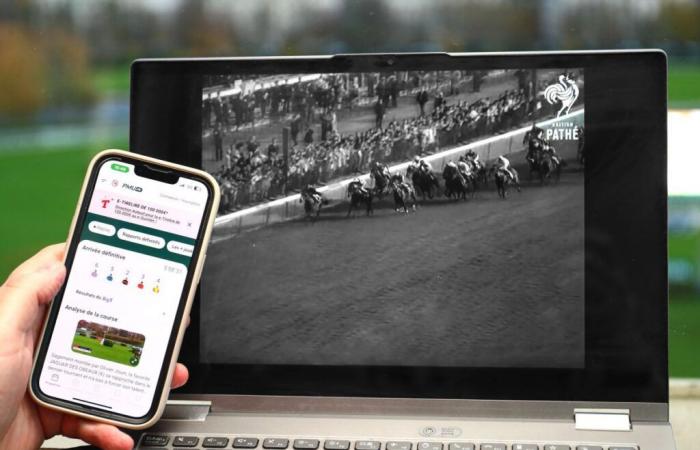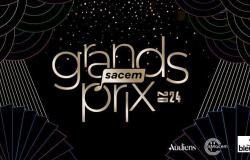Pushing back the range of possibilities. It’s the hit of the end of the year. It resonates in the minds of the leaders of the sector since they know that the PMU will not reach the objective of 851 million euros budgeted at the end of 2023. Inflation continues to run and the “race” engine, for not to seize up, absolutely needs “fuel” to maintain allocations and ensure tomorrow’s starters. The recent horse racing event on November 7 highlighted the difficulties encountered by horse racing betting for more than ten years, with the erosion of customers. When a group of four friends previously went to a PMU bar on Sunday morning to validate a few tickets, there will only be two left in 2024. “There is no time to wait. The market share of horse racing betting has been halved over the last fifteen years. We must reverse this trend; Now is the time to act,” said the President of France Galop, Guillaume de Saint-Seine, on the platform set up at Place Vauban at the end of the demonstration on November 7. His comments echoed those made just before him by his alter ego at the SETF, Jean-Pierre Barjon: “Give us the means to live up to our mission and build our future.” The future of horse racing in France will depend, as François-Xavier de Chevigny, president of the Association of Galop Trainers (AEG), declared on the same platform, through a win-win relationship with the State in order to “to straighten out our sector, to be attractive to younger generations.” “We need a PMU that can express itself more widely, it is governed by very old laws while the other players in the game are not. We need to put the PMU back on equal terms”added a few minutes later the deputy for Oise Eric Woerth, who had been at the heart of the action when online betting opened in 2010. And as you have read in numerous articles published in our columns, the institution works with elected officials (deputies and senators) to change the law by allowing bettors to play on past events, or even live, in order to increase the scope of what can be done at the level horse racing betting.
What is the principle of the game on past races?
L’Historical Horse Racing (hereinafter referred to as HHR, or Horse Racing of the Past), originally known asInstant Racing (instant races), is similar to an electronic game allowing players to bet, mutually, on replays of horse races (editor’s note: it is also possible to bet on greyhound races) using terminals similar to the machines mainly marketed across the Atlantic by Exacta Systems (subsidiary of Churchill Downs, Inc.), PariMax (division of Stronach) and Ainsworth Gaming Technology. Concretely, the player places his bet and determines the choice of the selected horse or horses whose identity is hidden (the horses are represented by a number or a letter), over a series of three races. Concretely, the player places his bet and determines the choice of the selected horse or horses whose identity is hidden (the horses are represented by a number or a letter), over a series of three races.
© FARM NEWS FIVE
This choice is made in two ways. The player takes on the handicap game and relies on graphics inspired by the Daily Racing Form (editor’s note: famous tabloid founded in 1894 in Chicago publishing the “music” of North American horses in the form of statistics intended for bettors), such as the success percentages of jockeys, trainers or even the rope number, to make the paper. No names appear on the screen, only statistics appear. Second option: the player wishes to make a “spot” (AutoCap) and it is the machine which automatically takes care of making the selection for him. The player’s stake is divided into several “betting pools”, on a mutual basis, with different winning possibilities depending on the type of bet (single win, coupled and trio).

© FARM NEWS FIVE
The race is then (entirely or partially) retransmitted and the money from the “pool” is distributed according to the winning games. If there is none, the bets accumulate until another bettor wins. The terminals used are very close to the operation of a modern slot machine, with a digital screen incorporating rotating reels displaying the results of the player’s bet, accompanied by video of the race, frequently in a corner at the top of the screen with the arrival. Generally, the machines reproduce the races in animated 3D, graphically close to a video game, and the software can integrate up to 60,000 races dating back to the early 1990s.

© FARM NEWS FIVE
At the origins of Historical Horse Racing
The HHR concept emerged in the second half of the 1990s, at the instigation of Eric Jackson, then general manager of Oaklawn Park Racetrack (Hot Springs, Arkansas) and with the support of Ted Mudge, former president of AmTote (editor’s note: American Totalisator Company, the largest platform for organizing betting in North America). The objective pursued is twofold: to boost the revenues of the horse racing industry to sustain it and to diversify the range of games offered to punters. In 1999, the Arkansas General Assembly (legislative body) validated the creation of HHR, then called “Instant Racing”, by establishing an exemption from the legal requirement that simultaneous races must be broadcast live. The first tests took place the following year, at Oaklawn Park Racecourse as well as Southland Greyhound Park, with, initially, around fifty machines at each site.
Historical Horse Racing is not unanimous
Today, HHR has legal existence in the following eight states: Arkansas, Kentucky, Louisiana, New Hampshire, Wyoming, Virginia, Alabama, and, as of 2022, Kansas. It was authorized before being banned in Idaho and Oregon (where the creation of 225 HHR, in 2022, failed at the request of the Department of Justice), all attempts in Nebraska and Texas having failed. The HHR is currently banned in eleven federal states and it should be noted that on February 23, a judge in Baton Rouge (Louisiana) declared the HHR unconstitutional. The day before, in Arizona, Attorney General Kristin Kay Mayes had issued a formal unfavorable opinion to supporters of HHR, refusing that such gaming devices benefit from legislative approval, which would infringe on the exclusive exploitation rights reserved for the Indian community. Despite its notoriety, the HHR is frequently contested, even in the Bluegrass region (see our figure below) where it is supposed to be on the rise. In 2020, following a complaint, the Kentucky Supreme Court concluded that an operator using HHR was not practicing pari-mutuel betting and that the system was therefore contrary to the Kentucky Constitution. It will take the adoption of a law, supported and promulgated on February 22, 2021 by Governor Andy Beshear, for the definition of pari-mutuel betting to include HHRs which are similar to slot machines.
The figure: €953 million
Kentucky has the highest HHR scores. In 2023 alone, revenue generated by HHRs was $953 million. Thanks to this financial windfall, the Red Mile (Lexington), which until recently was still organizing 14 meetings per year, increased to 30 meetings in 2024. The player return rate is around 91% (compared to 94 to 96% for slot machines), with part of the 9% going to the sector.
France wants to seize the ball
The rendering across the Atlantic is quite basic and France aims to have an even more successful system. It has been a little over three months since the request was made to the PMU teams to work on this project. The contours are not yet completely defined and groups of punters (not exclusively punters) have very recently been invited to comment on different formula proposals.

In view of this project to have players bet on past races, the PMU terminals could be enriched with new functionalities
© SCOOPDYGA – CHOURAQUI ELLIOTT
“The important thing is first to respect the result of the race and then several scenarios are possible in terms of representation on screen”, points us to a source. Once the program has been created with – and this is important – stakes recorded in pari-mutuel betting, the idea would be to attach new software directly to the existing PMU terminals so as not to clutter the points of sale with additional equipment. And only open bets on unoccupied slots, outside of live races on the racecourses, typically in the morning for example from 8 a.m. to 11 a.m. and after 8 p.m. or at the end of the night. A way, in short, to occupy the field compared to other forms of games (sports betting and in the future, perhaps, online casinos). “Today, we are really studying the principle, indicates the Secretary of the FNCH (National Horse Racing Federation), Pierre Préaud. The idea is that the institution has a stock of past races of around 150,000 recorded Premiums and, as is done in other countries (United States, Italy, Malta), to anonymize them to that even a very sophisticated artificial intelligence program cannot recognize them.” And to erase any notion of “virtual races”, data would be provided to players to allow them to carry out a quick “paper” before validating games on a board of very real horses, trained and ridden by real men. and bone. All this, provided of course that the legislative process comes to an end (read elsewhere).
What about live betting?
According to the information we have collected, the projects are much more embryonic regarding the famous “live betting” allowing live betting on horse races. The idea, again, is to ride the wave of sports betting (and particularly tennis) with uses that have developed in recent years among young people. Unlike sports betting, this would be mutual “live betting”, but only on the internet and for all French operators licensed by the ANJ (National Gaming Authority). This seems very difficult to transpose into points of sale, given the inconvenience that this type of game could cause.
Survey carried out by Samuel Marchesseau and Sylvain Copier
The legislative process
This idea of having players bet on past races has been in the PMU’s drawers for several years and the operator, in collaboration with the parent companies and the FNCH, is therefore reopening the file. The sector therefore relied on parliamentarians to present amendments in session, first of all in the National Assembly. The amendment drafted by Allier MP Nicolas Ray was then adopted before falling during the passage of the PLF (Finance Bill) from the National Assembly to the Senate. However, the text was added again by the President of the Cheval Group at the Palais du Luxembourg, in the person of Jean-Pierre Vogel. It will be voted on (or not) at the end of the week. Nothing has been done yet and the legislative process is taking its course. Nevertheless, the messages have gotten through and the horse racing industry is, more than ever, looking for new sources of income.






